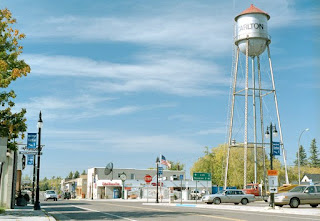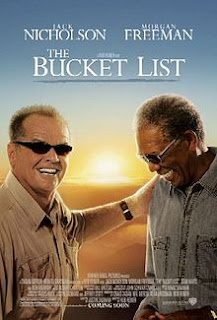A Love Letter to my Hometown
A few days ago a co-worker asked me if Addie Braver was entirely fictional. I said it was, but admitted that many of the themes in the book (addiction and recovery, loss and redemption) were familiar, not just to me, but to all of us. "Write what you know, I suppose?" she said. I agreed.
Sooner or later, we all find our therapy. It doesn't have to be talking to a trained professional or attending weekly meetings. Therapy comes in all shapes, sizes, and intensities. Therapy is running, singing, dancing, fishing, hiking, woodworking, painting, knitting, playing an instrument, and countless other fulfilling activities. My therapy just happened to be writing.
No, I didn't have a crippling addiction I needed to break. But if you're like me (and I think most of you are), you've collected a lot of baggage too. After while it gets pretty darn heavy, crushing us from time to time with the weight of expectation and disappointment. Not all of that baggage was ours, but as often as not, we ended up carrying it just the same. And then, through dumb luck or sheer will, we found our therapy. If we were lucky, that therapy lightened our burdens enough so that we could breathe again, stand upright, and shoulder life's load while simultaneously moving forward. And before we knew it, the burden became like air and drifted away.
I know the passing years have glossed over the memories I have of my hometown, but that doesn't diminish their importance decades later. Placing Addie Braver in Carlton, Minnesota (renamed Lost Elm) turned out to be my therapy. I wrote about a place and time where there was no baggage yet, using Carlton to heal adult wounds that hadn't entirely scabbed over, whether I knew or not. Regardless, home was the best healer.
For that home and that healing, I've enclosed another excerpt from Addie Braver, the first few pages of Chapter 1:
1
Halverson Road
“Come on, Shorty! JUST LET GO!”
Addie stood impatiently with her hands on her hips in the gravel valley
of Halverson Road. High on the crest of the hill her 13 year-old brother Billy
sat uneasily on his too small, too battered Huffy bicycle, soaking in her words.
The last day of school—Friday, June 3, 1977—was over but Addie wasn’t
looking forward to another summer vacation. Instead, she was trying to delay its
start for as long as she could. For 15 year-old Addie, summers meant one thing—three
long months tiptoeing around her alcoholic step-father.
“Shut up, Addie!” Billy yelled. “And stop calling me Shorty!”
“When have I ever called you Billy?!”
she hollered back. Billy shrugged, answering that he didn’t know. “Exactly! So
let’s go already, Shorty!”
“Knock it off, Addie! How come everything hasta be a fight with you?!”
Adeline Pearson was a hard person to like and she knew it. Her instincts
were finely honed to push back against everything and everyone in her life. Addie
had her reasons, but if her brother simply saw her as his angry, impatient
sister, then so be it. It wasn’t like she was going to tell Billy what really
drove her, what had driven her for years—protecting him.
“Don’t blame me!” she replied, ignoring his question. “You were the one
who said riding your bike no-handed was some sort of big deal!” Addie blew a
strand of straw-blonde hair away from her pale, freckled face. “I’m just making
sure you put your money where your mouth is!”
A
boyhood rite of passage or not, Billy wouldn’t be rushed, and had said as much
thirty minutes earlier. Addie didn’t listen then either, telling him to get his
bike and meet her on Halverson Road the moment they stepped off the school bus.
“What’s her problem?” he muttered, squeezing the cracked rubber grips on
the bike’s handlebars. As was his habit when he was nervous, Billy chewed his
lower lip and took a deep breath. It was shaping up to be a long, prickly
summer.
He
looked over at nearby Carson Hill, then to the interstate a mile further, ready
to surrender to Addie’s stubborn demand. But his focus and her attention were
drawn instead to a familiar, unwelcome rust-orange Ford Comet turning onto Pine
Circle from Halverson Road. As the car did, Addie’s hands left her hips and her
scowl faded.
“Come
on, Shorty!” she implored, her eyes blazing with renewed intensity. “You can do
this!” Billy didn’t feel Addie’s confidence, but he lifted his foot off the
pedal anyway. The bike quickly gained speed, the tires kicking up small rocks that had
been loosened by a road grader the day before. Slowly, his hands rose off the
handlebars.
For
an instant Billy believed his sister—I
can do this! But his belief vanished when the front tire struck an unyielding
rock and twisted hard to the right. Leading with his left shoulder, Billy
slammed onto the gravel, slid past Addie and tumbled headlong into the ditch.
The bike followed, coming to rest at his feet like a dog napping near its
master.
Addie
stepped casually into the ditch and examined the bike for damage before returning
her hands to her hips. “You’re fine,” she said matter-of-factly. “So you fell,
so what? You’re not hurt that bad, Shorty.”
“My
name’s not Shorty!” Billy yelled, his eyes wet with tears. “And this,” he gestured
to his ripped t-shirt. “This is all your fault!” One sleeve was gone, ripped
free by a piece of clear glass buried in his shoulder.
“Hold
still,” Addie ordered as blood trickled down Billy’s arm. “This is gonna hurt.”
Billy grunted as she yanked the shard free. He scanned the ditch for his torn sleeve,
hoping to use it to stanch the flow of blood, but found a faded red bandana
instead. Hidden beneath it was more broken glass.
“Is
that a bottle?” Billy asked, pressing the bandana into his shoulder.
“It
was,” Addie answered. “Before your shoulder smashed it to pieces.” She didn’t
have to guess whose bottle it was—she knew. “Let me do that,” she said, snatching
the bandana from his hand. Billy grimaced while Addie searched the cloth for a
set of embroidered initials. After finding them—JRP—she tied the bandana around the wound, then picked up his bike.
“Thanks,
Ad.”
“So
what are you going to tell Mom?” she asked, pointing to his torn shirt.
“That
you talked me into it, and as usual I was the only one who got hurt.” Billy
smiled despite his misery.
“But
you’re gonna try again, right? You’ll regret it if you don’t. I’m serious.”
“Serious
about what? It’s just Halverson Road,” he replied. “It’s not like I’m not
crossing the Atlantic in a hot air balloon.” But Billy’s failure embarrassed
him—he had practically grown up on two wheels. Adding to his humiliation was
the fact that he was still riding a bike more suited for a boy half his age.
“It’s
not just Halverson Road,” Addie
murmured, looking in the direction of Pine Circle where the Comet was most
likely parked. “Some things you just have to face.”
“Some
things I have to face?!” Billy snarled
in disbelief. “You’re one to talk.”
For
a moment Addie’s eyes flashed with a familiar anger. “I know, Shorty,” she
admitted. “I guess we both have things we need to work on this summer.”
“Come
on,” he said, calling a truce. “Let’s go home. But how many times do I have to
ask you? Stop calling me Shorty.”
⁕
They climbed out
of the ditch and away from Halverson Road towards the only other house on Pine
Circle. The sprawling rambler, like most of the half-mile Loop—no one called it Pine Circle—was home to the Farellis. It bordered
the lower field of nearby Carson Farm.
“What
the heck happened to you, Billy?”
Renny
Farelli always seemed to appear out of thin air whenever Billy was within
shouting distance of his house. A year younger and much shorter than Billy, with
a shock of unruly black hair, Renny was easy company, constantly chattering on about
whatever was on his mind.
“Whaddya
think happened?” Addie said accusingly.
Renny’s
cheerful expression disappeared. He was as naive as Addie was hostile. That her
irritation with him wasn’t personal was beyond Renny’s comprehension.
“Knock
it off, Addie,” Billy interjected. “Renny didn’t do anything.” He waved his
friend over. “Come on, Ren. Grab my bike.”
Renny
wheeled the bike around to Billy as they passed through the Farellis’ front
yard. Sure enough, a hundred feet further and across the Loop, the Comet was
parked in the Pearson’s driveway—just two shallow trenches of dirt on a thin
patch of grass. Next to it sat their modest trailer home.
“Hey,
Billy—I thought your dad was out of town?” Renny said.
“He’s
not our dad!” Addie barked.
Calling
the man in the trailer, Dad, made
sense to Billy, even if it felt wrong sometimes. Not Addie. She still remembered
another man. That man’s face lived on in her brother’s smile, another reason she
protected Billy so fiercely. To protect Billy was to protect her father’s
memory. The only name Addie ever used for the other man was Jake.



Eric, you have a mastery of the English language and a great ability to put into words the thoughts and feelings that so many share in one form or another!
ReplyDelete